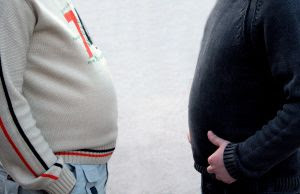Family and Work, Part 3: The Father and the Children

Family and Work, Part 3: The Father and the Children Colossians 3:20 Children, obey your parents in everything, for this pleases the Lord. (Colossians 3:20 ESV) Children, in the Greek, refers to offspring, regardless of age . It implies a result or something produced. The result of wise decisions is described as being children of wisdom. (Matthew 11:19). The owner of a vineyard had two children, old enough to work in a vineyard (Matthew 21:28). Jesus called his disciples, Children (Mark 10:24). Thus, all children, of any age , are to obey their parents in everything. Obey in the Greek means to listen attentively, implying obedience to a command. This word is related to that used of the woman's submission. Both words use the Greek preposition hypo, meaning under. However, they are distinctly different . The woman's submission to her husband is based upon arrangement . God has placed the husband as the head, and the woman as the helper, as a matter of arrangement an...





